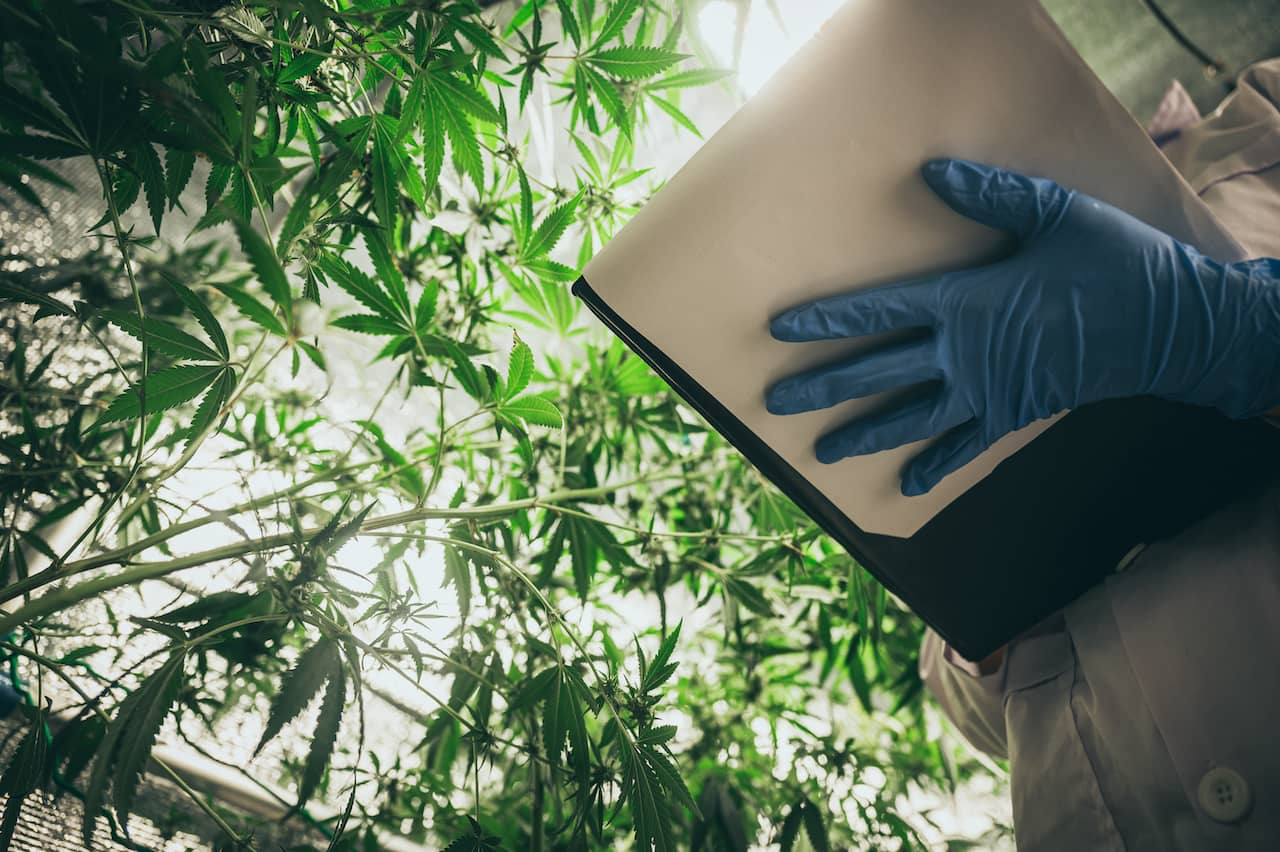Must-Read 280e Tax Code Guide for Cannabis Businesses

Disclaimer: LendThrive provides information that may be beneficial for cannabis business owners and does not offer financial advice.
Since the legalization of cannabis in the United States, businesses have been popping up left and right. However, entrepreneurs are left navigating through difficult waters to keep their businesses afloat.
The 280e tax code is one such obstacle that can plague a business’s overall revenue. Fortunately, there is help available for those who are struggling to understand this complex issue. Keep reading to learn more about the 280e tax code and how to navigate it.
What Is the IRS 280e Tax Code?
The 280e tax code was put in place by the IRS in 1982. This code prohibits businesses from deducting expenses related to the sale of illegal drugs. For cannabis businesses, this means that they are not able to deduct common business expenses like rent, utilities, payroll, etc. This can have a devastating effect on a company’s bottom line.
The 280e tax law was created in an effort to crack down on drug dealers. The IRS believed that by disallowing them to deduct their business expenses, it would make it harder for them to turn a profit. The problem is that this law doesn’t take into account the fact that cannabis is now legal in many states and is even considered medicinal by many people.
How Does 280e Impact Cannabis Businesses?
The 280e tax code can have a significant impact on a cannabis business’s revenue. In some cases, it can result in a business paying up to 90% of its total income in taxes. This leaves little room for profit and can make it difficult for businesses to stay alive.
Additionally, the 280e tax code makes it difficult for businesses to get loans and other forms of financing. This is because traditional lenders are often unwilling to work with businesses that are not able to deduct their expenses. The lack of access to financing can further hamper a business’s ability to grow and succeed.
State economies affected by the 280e tax code are those that engage in the cultivation, sale, or processing of the cannabis plant. These include dispensaries, cultivators, manufacturers, infused product makers, and transportation companies.
What Can Cannabis Businesses Do To Minimize the Impact of 280e?
There are a few things that cannabis businesses can do to minimize the impact of 280e:
- First, it is important to work with a professional who understands the ins and outs of the code. They can help you to maximize your deductions and minimize your tax liability.
- Additionally, you may want to consider relocating your business to a state with more favorable tax laws. This can help to reduce your overall tax burden.
- Finally, you may want to look into alternative cannabis business financing options, such as private investors or crowdfunding.
The 280e tax code can be a daunting obstacle for cannabis businesses. However, there are ways to work around it and minimize its impact. By working with an accountant and exploring all of your financing options, you can ensure that your business is able to thrive despite these challenges.
What Can You Deduct Under 280e?
The answer to this question is not simple. In general, cannabis businesses can only deduct the “cost of goods sold.” This includes the cost of the cannabis itself, as well as any costs associated with growing, harvesting, and processing the product. Other common business expenses, such as rent, utilities, payroll, etc., are not deductible.
Business Expenses Scrutinized Under the 280e Tax Code
The 280e tax code prohibits businesses from deducting any expenses related to the sale of cannabis (and other prohibited drugs), including the following:
- Employee wages
- Utility costs such as electricity, phone, internet, water, etc.
- Health insurance costs
- Rental expenses
- Maintenance and repairs
- Marketing and advertising costs
- Payments to contractors
280e Cost of Goods Sold
The 280e tax code has an impact on the way that businesses calculate their cost of goods sold (COGS). COGS is the direct costs associated with producing a product or service. For cannabis businesses, this includes things like the cost of cultivating and harvesting the plants, processing the buds, and packaging the finished product.
Under the 280e tax code, businesses cannot deduct these costs from their taxes. This can make it difficult to calculate COGS accurately, which can have a ripple effect on other aspects of the business.
Fortunately, there are a few ways to work around this issue. First, you can work with an accountant who understands the 280e tax code and can help you to accurately calculate your COGS. Additionally, you can keep meticulous records of all of your costs associated with producing your product or service. This will help to ensure that you are able to accurately calculate your COGS in the event that you are audited by the IRS.
Need Funding For Your Cannabis Business?
If you are a cannabis business owner, it is important to understand the impact that the 280e tax code can have on your business. Fortunately, there are a few ways to work around this issue. However, you may need additional financing to help offset the cost of doing business in the cannabis industry.
At LendThrive, we are committed to helping cannabis businesses thrive. We offer fixed-rate business loans of up to $150,000. You may apply online and get approved in as fast as 24 hours.
Apply for a business loan now.
Disclaimer: LendThrive provides information that may be beneficial for cannabis business owners and does not offer financial advice.



